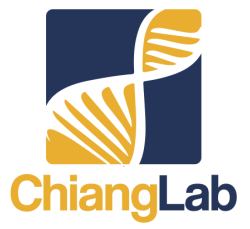|
The original post
1. The English version is from Tsai-Yu Lu of UMass. 2. The Chinese version is from Dr. Wei-Yu Chen of Chang Gung Memorial Hospital CTRBS. Advice to the young scientist from Dr. David D. Ho. (2014 Boston Taiwanese Biotechnology Symposium, Cambridge, MA, 6/14/2014) 1. The primary ingredient for success in science is the passion for science. In front of you is the century of science and medicine. Challenges and opportunities abound. A strong passion for science will sustain you. 2. Do not be afraid to take a chance. Success in research, as is the case in most endeavors, requires bold decision-making and a willingness to take informed risks. As so eloquently stated by Harold Shapiro, the former President of Princeton, “an excessive zeal to avoid all risks is, in the end, an acceptance of mediocrity and a abdication of leadership.” 3. It is a given that you must acquire the knowledge and develop the skills in your chosen field. However, I urge you to read broadly. Go to meetings and listen attentively. Talk science with colleagues from other disciplines. Do not narrowly focus only on your own field, for the breakthroughs may, seemingly and unpredictably, come from “left field.” 4. Always maintain a deep commitment to excellence. Never permit the quality of your work to be compromised. Never write a bad paper. Never give a bad talk. Never lower your standard of excellence. 5. Always seek the truth and learn to challenge phony authority. Blind respect for authority is the worst enemy of truth. Learn to distinguish between truth and dogma. Unsubstantiated dogma restricts the free thinking that is essential to arrive at the scientific truth. Send out “dogma alerts” in your own mind when you hear personal biases presented as established facts. Do not let yourself be boxed in by dogma. 6. Know the difference between the words “could” and “should.” Too often young scientists do the experiment they “could” do rather than the experiments they “should” do. Think about this distinction when you come to each critical juncture in your projects. The former could get you stuck in a rut while the latter could elevate you to new heights. 7. Strike the right balance between thinking and experimenting, and between “vision” and “action.” All of us were taught to work hard. Thus, too many young scientists grind away relentlessly, carrying out experiments one after another, without ever reserving sufficient time to read and think. Make regular appointments with yourself for a quiet time to think and to strategize. Remember this old Japanese proverb: “vision without action is a dream; action without vision is a nightmare.”
0 Comments
Leave a Reply. |
The Chiang LabDepartment of Life Science Archives
September 2020
Categories |

 RSS Feed
RSS Feed
